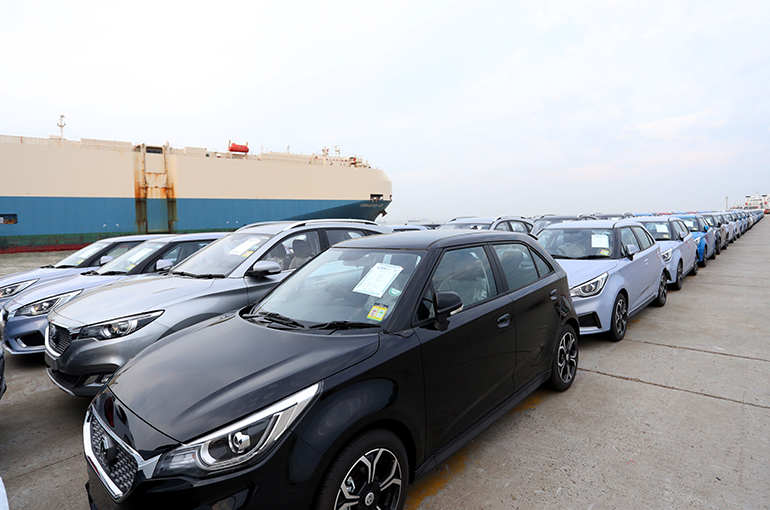 Shanghai New Energy Firms Go Global Through China’s Belt and Road Initiative
Shanghai New Energy Firms Go Global Through China’s Belt and Road Initiative(Yicai) Sept. 28 -- More Shanghai technology firms that specialize in new energy fields such as hydrogen, batteries and unmanned electric trucks are expanding their worldwide footprint by linking up with projects in countries participating in China’s Belt and Road Initiative.
There are many opportunities for Chinese firms in terms of hydrogen-related collaborations with countries along the Belt and Road route, said Cheng Wei, the executive in charge of Shanghai Hydrogen Propulsion Technology under carmaker SAIC Motor at a forum yesterday.
This is because these countries are very reliant on fossil fuels and most of them are actively transitioning to green and low-carbon energies, Cheng said at the 2nd Conference of the Belt and Road Economic Information Partnership.
China should strengthen its infrastructure tie-ups with overseas partners, in areas such as hydrogen production, equipment, refueling stations and cross-regional pipelines, so as to strongly support the promotion of a green Belt and Road Initiative, he said.
China has the most hydrogen refueling stations in the globe, according to a report recently issued by the Hydrogen Energy Industry Promotion Association. As of June 30, there were 1,089 hydrogen refueling stations worldwide, 32.2 percent of which were in China.
China’s artificial intelligence and autonomous driving technology can not only assist Belt and Road countries in enhancing their port operation efficiency, but also help reduce carbon emissions, said Tan Limin, chairman of Westwell Lab, which provides AI-powered logistics solutions to clients in more than 18 countries and regions.
As Chinese companies go global, their financial needs are changing, said Lu Jing, vice president of the UK lender’s China arm. There is growing demand for green and sustainable financing and an increased need for the use of the Chinese yuan in overseas regions.
Last year, Standard Chartered was involved in over 130 Belt and Road Initiative projects with a value of over USD21 billion, said Lu. And around 40 percent of them met the Sustainable Development Goals’ requirements set by the United Nations.
In the past decade, Shanghai invested nearly USD30 billion in the Belt and Road Initiative’s participating nations and it contracted projects worth over USD70 billion, and the value of goods traded has surpassed USD1 trillion, Mayor Gong Zheng said at the forum.
Editor: Kim Taylor